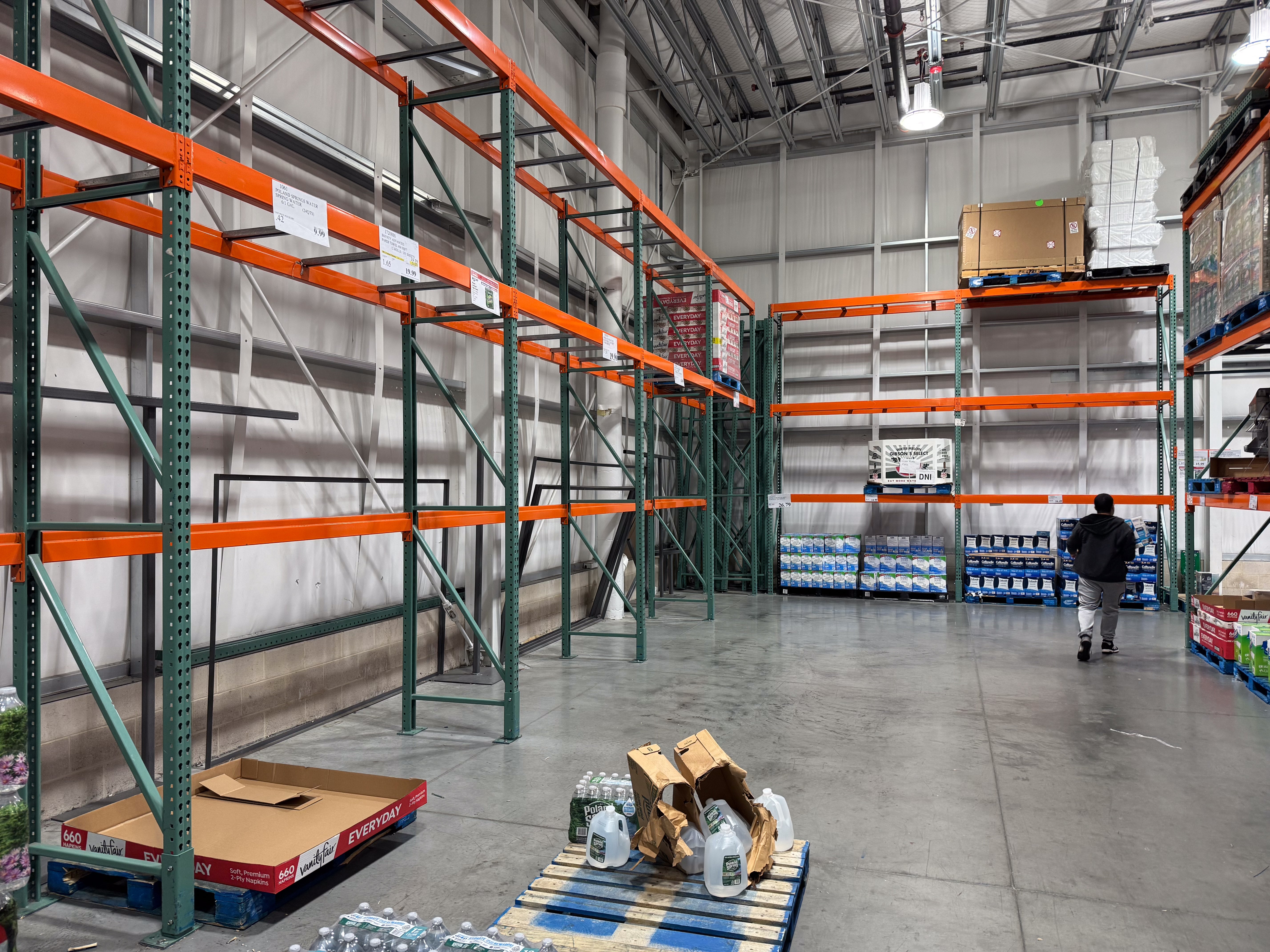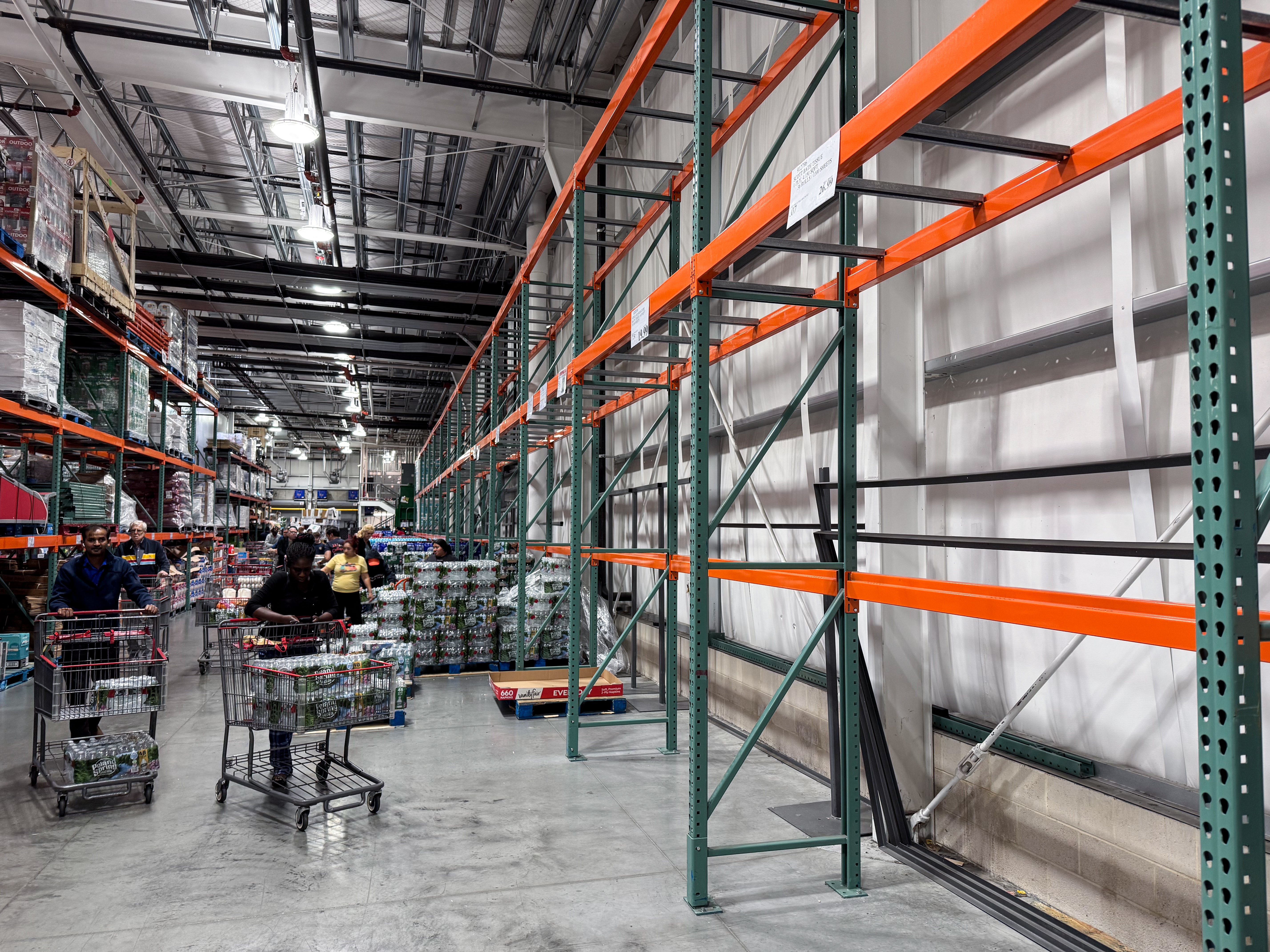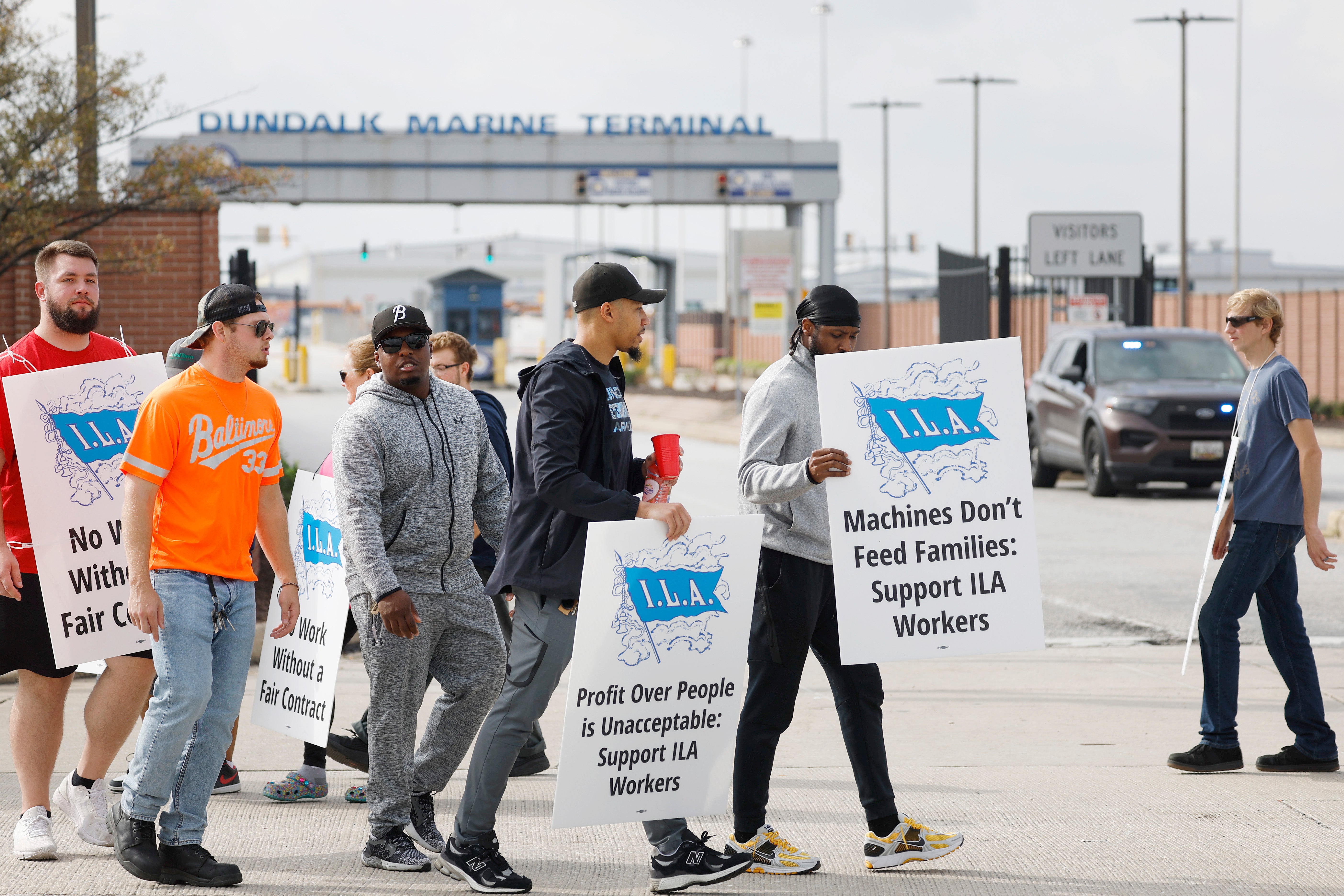Why is toilet paper out of stock? Customers panic-buy as port strike enters day three
If you have seen panic buying in your local store feel free to reach out at kelly.rissman@independent.co.uk
Your support helps us to tell the story
From reproductive rights to climate change to Big Tech, The Independent is on the ground when the story is developing. Whether it's investigating the financials of Elon Musk's pro-Trump PAC or producing our latest documentary, 'The A Word', which shines a light on the American women fighting for reproductive rights, we know how important it is to parse out the facts from the messaging.
At such a critical moment in US history, we need reporters on the ground. Your donation allows us to keep sending journalists to speak to both sides of the story.
The Independent is trusted by Americans across the entire political spectrum. And unlike many other quality news outlets, we choose not to lock Americans out of our reporting and analysis with paywalls. We believe quality journalism should be available to everyone, paid for by those who can afford it.
Your support makes all the difference.More and more social media users are reporting ‘panic buying’ of toilet paper and other goods across the US as news of the port strike spreads.
Many shipping ports across the US are closed while 45,000 dockworkers are on strike - with no resolution in sight. That has led some to snatch up various goods at their grocery stores - even when it might not be necessary.
Empty shelves are now springing up in places such as Virginia, New Jersey and Arizona as people rush to buy goods. One of the most purchased items is toilet paper, and it brings back memories of panic buying during the pandemic.
“People are panicking over this port workers strike. I’m about to leave the country, so I refuse to buy things I won’t use for a while, but jeez, at least there was toilet paper,” @TheLizVariant wrote on X.
“Seems people are losing their minds over toilet paper again. Local Walmart has been gutted. Nary a roll to be found,” another user wrote.


While experts told USA Today that certain imported goods, including bananas, alcohol and seafood, are likely to be impacted by the strike no mention has been made of toilet paper.
The vast majority of toilet paper sold in the US comes from domestic factories, according to the Center for Land Use Interpretation. That is mostly moved by rail and truck versus coming in through ports. The paper it does import largely comes from Canada and Mexico, which wouldn’t need shipping ports such as those impacted by the strike.
Georgia Republican Rep Marjorie Taylor Greene nonetheless blamed the strike for the lack of toilet paper in her local store. “Toilet paper is always the first to go,” she wrote in a post on X on Tuesday. “We shouldn’t be dependent on foreign countries for all of our needs! Put America FIRST!!!”
More than 45,000 dock workers have gone on strike starting Tuesday.
The International Longshoremen’s Association is demanding significantly higher wages and a total ban on the automation of cranes, gates and container-moving trucks that are used in the loading or unloading of freight at 36 U.S. ports. Those ports handle roughly half of the nations’ cargo from ships.
While any port can handle any type of goods, some ports are specialized to handle goods for a particular industry. The ports affected by the shutdown include Baltimore and Brunswick, Georgia, the top two busiest auto ports; Philadelphia, which gives priority to fruits and vegetables; and New Orleans, which handles coffee, mainly from South America and Southeast Asia, various chemicals from Mexico and North Europe, and wood products from Asia and South America.
Other major ports affected include Boston; New York/New Jersey; Norfolk, Virginia; Wilmington, North Carolina; Charleston, South Carolina; Savannah, Georgia; Tampa, Florida; Mobile, Alabama; and Houston.

Rising uncertainty over the supply chain arrives at the peak of the holiday shipping season for retailers, which traditionally runs from July through early November. Many big retailers, anticipating a strike, started shipping goods to U.S. distribution centers in June, and Gold said that the majority of those products are already in the US.
Yet on top of the cost of storing goods for longer, retailers will have a hard time replenishing their inventory should the strike drag on, and as Gold pointed out, carriers are already announcing surcharges on shipped containers due to potential disruptions.
Toy companies had ready diverted many shipments through Los Angeles in anticipation of a strike and inventories at stores are right now are healthy, said Greg Ahearn who leads The Toy Association, the nation’s leading toy trade group. He said Wednesday that the strike becomes more problematic with time, specifically in satisfying demand for popular toys as Christmas approaches.

Join our commenting forum
Join thought-provoking conversations, follow other Independent readers and see their replies
Comments